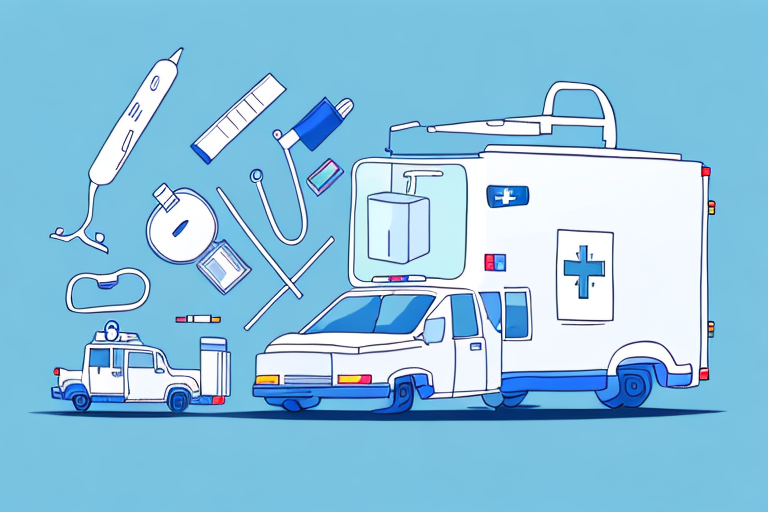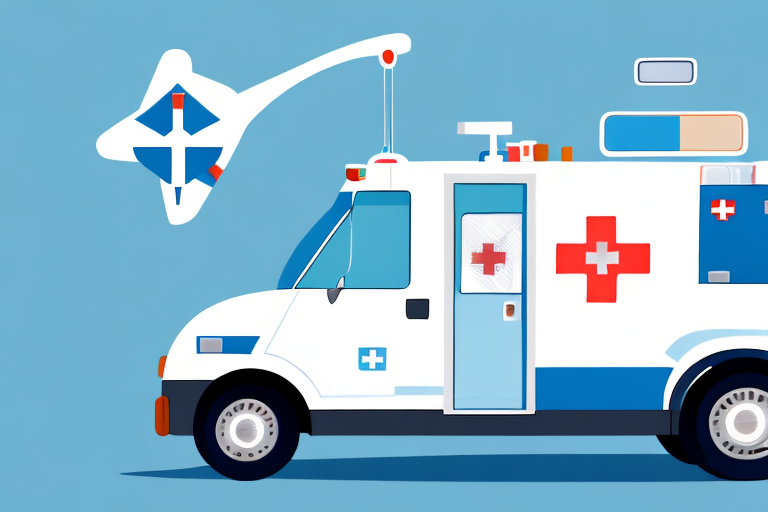How Much Does a Medical Courier Make? A Comprehensive Guide
As healthcare facilities continue to expand their operations, having a reliable means of transporting medical supplies and samples between different locations becomes increasingly essential. Medical couriers play a crucial role in ensuring that medical items are promptly delivered to their designated destinations, contributing significantly to the efficiency of healthcare services.
If you are considering a career as a medical courier, one of the primary questions you'll have is about the potential earnings. The salary of a medical courier varies based on several factors, which we will explore in detail below.
Role and Responsibilities of a Medical Courier
What is a Medical Courier?
A medical courier is a professional responsible for handling and transporting medical specimens, supplies, and equipment. These items may include blood samples, laboratory reports, medical records, and even organs for transplant. The primary responsibility of a medical courier is to ensure that these items are transported safely and promptly from one location to another without any damage or contamination.
Daily Duties and Tasks
- Transporting blood samples, urine samples, and other laboratory specimens to and from medical facilities.
- Delivering medical records and documentation between hospitals, clinics, and laboratories.
- Handling and transporting sensitive equipment and supplies required for patient care.
- Maintaining accurate records of deliveries and pickups.
- Ensuring that all transported items comply with healthcare regulations and safety protocols.
Work Environment
Medical couriers work in various settings, including hospitals, clinics, laboratories, and other healthcare facilities. Some couriers are independent contractors, while others are employed by courier services that specialize in medical transportation.
The Importance of Medical Couriers in the Healthcare Industry
Medical couriers are integral to the smooth functioning of the healthcare industry. Without them, the timely delivery of medical supplies and specimens would be compromised, impacting patient care and the efficiency of medical operations.
Ensuring Timely Deliveries
Timely delivery of medical items is critical, especially in emergency situations. Medical couriers help ensure that laboratories receive specimens promptly for testing, that hospitals have the necessary supplies, and that organs reach transplant centers within the required timeframes, which can be lifesaving.
Maintaining Quality and Safety
Medical couriers adhere to strict protocols to maintain the integrity and safety of the items they transport. This includes using specialized packaging, maintaining temperature controls for sensitive materials, and following guidelines to prevent contamination or damage.
Supporting Healthcare Operations
By handling the logistics of medical transport, couriers allow healthcare professionals to focus on patient care. This support is essential for the overall efficiency and effectiveness of healthcare services.
Salary and Factors Affecting Earnings
Average Salary in the United States
According to data from the Bureau of Labor Statistics, the average annual salary for medical couriers in the United States is approximately $35,000. However, this figure can vary widely based on several factors.
Factors Influencing Salary
- Employer: Couriers working for large hospitals or specialized medical facilities often earn more than those employed by smaller clinics or independent courier services.
- Location: Salaries tend to be higher in urban areas or regions with a higher cost of living compared to rural areas.
- Experience: Experienced couriers with a proven track record may command higher wages.
- Vehicle Requirements: Couriers required to use their own vehicles may have different earning potentials based on vehicle type and maintenance responsibilities.
- Specialization: Transporting high-value or sensitive materials, such as organs for transplant or hazardous substances, can lead to higher compensation.
Hourly Rates
Medical couriers may also be compensated on an hourly basis, with rates typically ranging from $12 to $25 per hour. Overtime opportunities can further increase earnings, especially during peak demand periods.
Educational and Skill Requirements
Educational Background
While there is no formal education requirement to become a medical courier, most employers prefer candidates with at least a high school diploma or GED equivalent. Some positions may require additional certifications in medical transportation or logistics.
Essential Skills
- Communication: Effective communication skills are essential for interacting with healthcare professionals and addressing any delivery issues.
- Attention to Detail: Ensuring that all items are correctly handled and delivered to the right destination requires meticulous attention to detail.
- Time Management: Couriers must manage their schedules efficiently to meet tight deadlines and maintain punctuality.
- Problem-Solving: The ability to navigate unexpected challenges, such as traffic delays or route changes, is crucial.
- Physical Fitness: Handling and transporting medical supplies may require physical stamina and the ability to lift heavy packages.
Certifications and Training
Obtaining a certification in medical courier training can provide an edge in the job market. These programs cover the proper handling and transportation of medical specimens, safety protocols, and relevant regulations.
Career Outlook and Advancement
Job Growth
The demand for medical couriers is expected to grow steadily. According to the Bureau of Labor Statistics, employment in the courier and messenger industry is projected to grow by 4% from 2019 to 2029, driven by the increasing need for reliable medical transportation services.
Career Advancement Opportunities
Medical couriers can advance their careers by:
- Obtaining advanced certifications in logistics or medical transportation.
- Gaining experience in specialized fields, such as organ transport or hazardous materials handling.
- Transitioning into supervisory or management roles within courier services.
- Expanding their qualifications to include related healthcare fields, such as nursing or healthcare administration.
Challenges and Safety Protocols
Common Challenges
- Dealing with traffic congestion and navigating unfamiliar routes.
- Maintaining the proper handling and storage of sensitive medical items.
- Adhering to strict safety protocols while on the job.
- Meeting tight deadlines and working under pressure.
Safety Measures
Medical couriers must follow stringent safety measures to ensure the integrity of transported items:
- Proper Labeling: Ensuring all specimens and supplies are correctly labeled for accurate handling.
- Insulated Packaging: Using specialized packaging to maintain appropriate temperature controls for sensitive items.
- Vehicle Sanitation: Regularly disinfecting vehicles and equipment to prevent contamination.
- Protective Gear: Wearing gloves, masks, and other protective equipment when handling specimens.
- Regulatory Compliance: Adhering to federal and state regulations regarding the transportation of hazardous materials.
Impact of COVID-19 on Medical Courier Demand
The COVID-19 pandemic has significantly increased the demand for medical couriers. The need to transport specimens for testing, deliver personal protective equipment (PPE), and distribute vaccines has highlighted the essential role of medical couriers in the healthcare ecosystem.
Medical couriers have been instrumental in ensuring that healthcare facilities remain operational by providing timely and efficient transportation of critical supplies and specimens, thereby supporting the efforts to contain the virus and provide care to patients.
Conclusion
Becoming a medical courier offers a rewarding career path with competitive earnings and opportunities for growth. As the healthcare industry continues to evolve, the demand for reliable and efficient medical couriers is expected to remain strong. By understanding the role, required skills, and factors influencing salary, you can position yourself for success in this vital field. Additionally, staying informed about industry developments and pursuing relevant certifications can further enhance your career prospects as a medical courier.






















